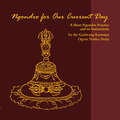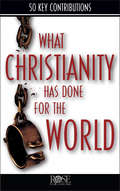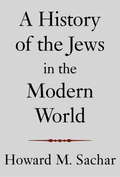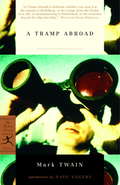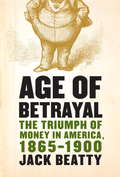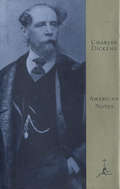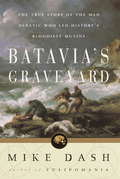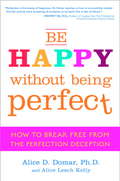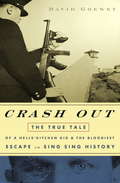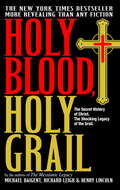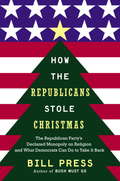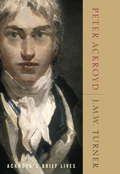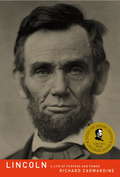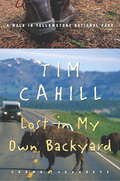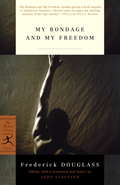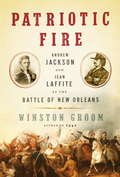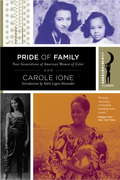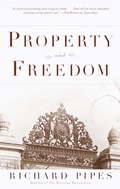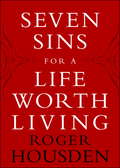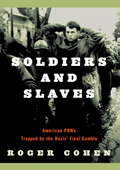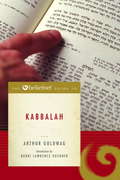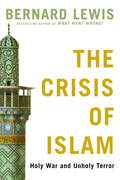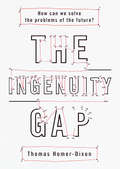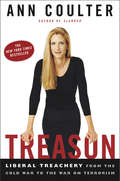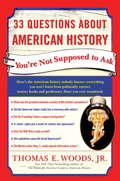- Table View
- List View
Ngondro for Our Current Day: A Short Ngondro Practice and its Instructions
by Ogyen Trinley DorjeIn this succinct teaching presented in 2006 by His Holiness the Seventeenth Gyalwang Karmapa in Bodhgaya, India, students are guided through a shortened version of the preliminaries for mahamudra practice, which His Holiness composed with the aim of benefiting practitioners from developed countries who often lead busy lives. The complete practice, in Brief Recitations, is written in English, Tibetan, and Tibetan transliteration, and complete instructions for the Four Special Preliminaries are provided, with the exception of guru yoga. His Holiness guides students through the details of each practice, including the visualizations of Refuge, Vajrasattva purification, and Mandala offerings, often punctuated with his good humor. A summary of the practice sequences and a list of precepts of the refuge vow are also included in two appendices.
What Christianity Has Done for the World
by Rose PublishingA recent study concluded that Christianity's image is the United States is declining, especially among young people. Only 16% of non-Christians between the ages of 16 and 29 have a "good impression" of Christianity according to Barna Research. Evangelicals come under the severest criticism, with only 3% of 16-29 year olds having a favorable view of this group of Christians.This pamphlet was written to show this generation some of the "good deeds" that Christians have done over the past 2000 years.The Scriptures say that even non-Christians will glorify God when they see the kindness and good works done by Christians (Matthew 5:16; 1 Peter 2:12)It includes dozens of examples, from the abolition of slavery in England to advances in medicine and science. Includes specifics about educating the poor, feeding the hungry, caring for lepers, and reforming laws to protect the weak. This is a valuable reference guide--buy one for a skeptical friend and another for yourself. Examples are taken from art, literature, science, medicine, law, education, philosophy, charity, and equality for all people.
A History of the Jews in the Modern World
by Howard M. SacharHistorian Sachar writes of the history of the Jews over the past 400 years, from Western Europe's 17th century age of mercantilism, to the 21st century struggle for Soviet Jewry. While he addresses the rise of Zionism and the birth of the State of Israel, he does not provide a comprehensive examination of the independent nation, explaining that it deserves its own separate treatment. He includes less common subjects such as the Sephardic-Oriental diaspora, and the Jews of Africa and of Moslem regions, and concludes with a prognosis for the 21st century. Annotation ©2005 Book News, Inc. , Portland, OR (booknews. com)
A Tramp Abroad
by Mark TwainThis book an EXACT reproduction of the original book published before 1923. This IS NOT an OCR'd book with strange characters, introduced typographical errors, and jumbled words. This book may have occasional imperfections such as missing or blurred pages, poor pictures, errant marks, etc. that were either part of the original artifact, or were introduced by the scanning process. We believe this work is culturally important, and despite the imperfections, have elected to bring it back into print as part of our continuing commitment to the preservation of printed works worldwide. We appreciate your understanding of the imperfections in the preservation process, and hope you enjoy this valuable book.
Age of Betrayal: The Triumph Of Money In America, 1865-1900
by Jack BeattyA senior editor at The Atlantic Monthly, Beatty tells how, having redeemed democracy during the Civil War, America betrayed it during the Gilded Age. That time, he says, saw the birth of the plutocracy and inequality that rules the country a century later. Annotation ©2007 Book News, Inc. , Portland, OR (booknews. com)
American Notes
by Charles DickensWhen Charles Dickens set out for America in 1842 he was the most famous man of his day to travel there - curious about the revolutionary new civilization that had captured the English imagination. His frank and often humorous descriptions cover everything from his comically wretched sea voyage to his sheer astonishment at the magnificence of the Niagara Falls, while he also visited hospitals, prisons and law courts and found them exemplary. But Dickens's opinion of America as a land ruled by money, partly built on slavery, with a corrupt press and unsavoury manners, provoked a hostile reaction on both sides of the Atlantic. American Notes is an illuminating account of a great writer's revelatory encounter with the New World.
Batavia's Graveyard: The True Story of the Mad Heretic Who Led History's Bloodiest Meeting
by Mike DashFrom the bestselling author of Tulipomania comes Batavia’s Graveyard, the spellbinding true story of mutiny, shipwreck, murder, and survival.It was the autumn of 1628, and the Batavia, the Dutch East India Company’s flagship, was loaded with a king’s ransom in gold, silver, and gems for her maiden voyage to Java. The Batavia was the pride of the Company’s fleet, a tangible symbol of the world’s richest and most powerful commercial monopoly. She set sail with great fanfare, but the Batavia and her gold would never reach Java, for the Company had also sent along a new employee, Jeronimus Corneliszoon, a bankrupt and disgraced man who possessed disarming charisma and dangerously heretical ideas. With the help of a few disgruntled sailors, Jeronimus soon sparked a mutiny that seemed certain to succeed—but for one unplanned event: In the dark morning hours of June 3, the Batavia smashed through a coral reef and ran aground on a small chain of islands near Australia. The commander of the ship and the skipper evaded the mutineers by escaping in a tiny lifeboat and setting a course for Java—some 1,800 miles north—to summon help. Nearly all of the passengers survived the wreck and found themselves trapped on a bleak coral island without water, food, or shelter. Leaderless, unarmed, and unaware of Jeronimus’s treachery, they were at the mercy of the mutineers.Jeronimus took control almost immediately, preaching his own twisted version of heresy he’d learned in Holland’s secret Anabaptist societies. More than 100 people died at his command in the months that followed. Before long, an all-out war erupted between the mutineers and a small group of soldiers led by Wiebbe Hayes, the one man brave enough to challenge Jeronimus’s band of butchers.Unluckily for the mutineers, the Batavia’s commander had raised the alarm in Java, and at the height of the violence the Company’s gunboats sailed over the horizon. Jeronimus and his mutineers would meet an end almost as gruesome as that of the innocents whose blood had run on the small island they called Batavia’s Graveyard.Impeccably researched and beautifully written, Batavia’s Graveyard is the next classic of narrative nonfiction, the book that secures Mike Dash’s place as one of the finest writers of the genre.
Be Happy Without Being Perfect
by Alice D. Domar Alice Lesch KellyDo you have trouble going to bed at night when there’s a mess in the kitchen? Do you think you would be happier if only you could lose weight, be a better parent, work smarter, reduce stress, exercise more, and make better decisions? You’re not perfect. But guess what? You don’t have to be. All of us struggle with high expectations from time to time. But for many women, the worries can become debilitating–and often, we don’t even know we’re letting unrealistic expectations color our thinking. The good news is, we have the power to break free from the perfectionist trap–and internationally renowned health psychologist, Dr. Alice Domar can show you how. Be Happy Without Being Perfectoffers a way out of the self-imposed handcuffs that this thinking brings, providing concrete solutions, practical advice, and action plans that teach you how to: • Assess your tendency toward perfectionism in all areas of your life • Set realistic goals • Alleviate the guilt and shame that perfectionism can trigger • Manage your anxiety with clinically proven self-care strategies • Get rid of the unrealistic and damaging expectations that are hurting you–for good! Filled with the personal insights of more than fifty women,Be Happy Without Being Perfectis your key to a happier, calmer, and more enjoyable life. From the Hardcover edition.
Crash Out
by David GoeweyThe enthralling and evocative story of tough Depression-era bandits who vowed to make something of themselves, even if that meant defying the stone walls of America’s most infamous prison, by a writer who grew up in Sing Sing’s shadow. During an era of never-ending breadlines and corrupt cops, no place churned out budding crooks more efficiently than Hell’s Kitchen. Neighborhood loyalties bonded gangs of immigrant sons who were looking for a way out of 1930s New York, and waterfront kids like Whitey Riordan paid the bills with small-time hustling. But when enterprising crook Patches Waters invited Whitey into the Shopping Bag Gang, Whitey jumped at the big score. Bold black headlines announced the group’s string of successful heists, but the gravy train abruptly halted in 1939 when someone squealed and police captured most of the gang. Patches and Whitey were sent up the river to Sing Sing. Westside connections couldn’t help much there, in the infamous Hudson River prison that had housed convicts for more than a century. In Sing Sing the boys had to answer to veteran warden Lewis Lawes, a revolutionary reformer who preferred trust and rehabilitation to old standbys like the lash and the yoke. Progressive indeed, but nothing changed the fact that Whitey and Patches, along with more than 2,800 other men, faced a future of endless days in a cage of limestone, cement, and steel. Perhaps inevitably, their thoughts turned to escape. A string of well-publicized jailhouse riots and breakouts captured the country’s interest in the 1930s, and though prisons kept stepping up security, convicts continued to crash out. When Patches encountered an old cellblock crony who had stumbled upon a way out, he pieced together a daring escape plot involving purloined guns, counterfeit keys, precision timing, a complex network of outside accomplices, and the kind of outsize bravado that would have made Dillinger proud. Unable to resist the thought of freedom, Whitey signed on. On Easter Sunday 1941, the three embarked upon the most sensational breakout in the prison’s history. Leaving four men dead and indelibly staining the reputation of the nation’s most famous warden, the Westside boys transcended their wildest dreams, only to find themselves backed to the edge of a wide, dark river. Meticulously researched and beautifully written,Crash Outis a gritty, page-turning saga that reveals how the career of one resilient hustler can illuminate a sliver of Americana. A riveting account of the boldest escape in Sing Sing history and the gangster culture that birthed the defiant bandits,Crash Outis a gripping historical epic set against the fascinating backdrop of Depression-era New York. From the Hardcover edition.
Holy Blood, Holy Grail: The Secret History of Christ. The Shocking Legacy of the Grail
by Michael Baigent Richard Leigh Henry LincolnIs the traditional, accepted view of the life of Christ in some way incomplete? • Is it possible Christ did not die on the cross? • Is it possible Jesus was married, a father, and that his bloodline still exists? • Is it possible that parchments found in the South of France a century ago reveal one of the best-kept secrets of Christendom? • Is it possible that these parchments contain the very heart of the mystery of the Holy Grail? According to the authors of this extraordinarily provocative, meticulously researched book, not only are these things possible — they are probably true! so revolutionary, so original, so convincing, that the most faithful Christians will be moved; here is the book that has sparked worldwide controversey. "Enough to seriously challenge many traditional Christian beliefs, if not alter them. " —Los Angeles Times Book Review "LikeChariots of the Gods?. . . the plot has all the elements of an international thriller. " —Newsweek From the Paperback edition.
How the Republicans Stole Christmas
by Bill PressIn the wake of an election seen by many as a triumphant victory for “moral values,” political commentator and one-time seminarian Bill Press launches a counteroffensive against the so-called religious right. For decades, Press argues, conservative preachers such as Jerry Falwell, Pat Robertson, and James Dobson—joined by most Catholic bishops—have defined religion so narrowly that Democrats and liberals have been pushed outside the fold. According to their narrow gospel, God put George Bush in the White House to deal with gays, guns, and abortion—and those who don’t agree are on the sure road to hell. Bill Press says it’s time to take religion back: “Who gave this gang the inside track on religion, anyway? The way I read the Gospels, Jesus was as liberal as Paul Wellstone. He sure as hell wouldn’t have been a registered Republican. One other thing’s for sure: if Jesus ever came back to earth, there’s one gang he wouldn’t hang out with; and that’s this phony bunch of pious, puffed-up preachers who wear religion on their sleeves. ” How the Republicans Stole Christmasis also Press’s fervent call to Democrats and liberals to reclaim religion and return it to its basic principles of social justice, charity, and tolerance. Press argues that the Right didn’t just steal religion, the Left let them have it, offering no resistance as conservatives dictated what’s right and what’s wrong. But on today’s social issues, according to Press, religious conservatives have gotten it all wrong. They have turned Jesus from a loving Messiah who championed the poor and dispossessed into a cold-blooded advocate for the rich and powerful. Press does not confine his criticisms to so-called Christian leaders; he uncovers the same wrong-headed tendencies in other faiths and among nonbelievers, who even today cling to the Old Testament as an appropriate code of behavior. From the Hardcover edition.
J.M.W. Turner
by Peter AckroydAlso available in ACKROYD’S BRIEF LIVES ChaucerIn this second volume in the Ackroyd’s Brief Lives series, bestselling author Peter Ackroyd brings us a man of humble beginnings, crude manners, and prodigious talents, the nineteenth-century painter J. M. W. Turner. Joseph Mallord William Turner was born in London in 1775. His father was a barber, and his mother came from a family of London butchers. “His speech was recognizably that of a Cockney, and his language was the language of the streets. ” As his finest paintings show, his language was also the language of light. Turner’s landscapes—extraordinary studies in light, colour, and texture—caused an uproar during his lifetime and earned him a place as one of the greatest artists in history. Displaying his artistic abilities as a young child, Turner entered the Royal Academy of Arts when he was just fourteen years old. A year later his paintings appeared in an important public exhibition, and he rapidly achieved prominence, becoming a Royal Academician in 1802 and Professor of Perspective at the Academy from 1807–1837. His private life, however, was less orderly. Never married, he spent much time living in taverns, where he was well known for his truculence and his stinginess with money. Peter Ackroyd deftly follows Turner’s first loves of architecture, engraving, and watercolours, and the country houses, cathedrals, and landscapes of England. While his passion for Italy led him to oil painting, Turner’s love for London remained central to his heart and soul, and it was within sight of his beloved Thames that he died in 1851. His dying words were: “The sun is God. ”
Lincoln
by Richard CarwardineCarwardine (American history, Oxford U. ) received the Lincoln Award--the first British scholar to do so--for this biography, originally published in 2003 by Pearson/Longman. Half of it addresses Lincoln's (1809-65) career and the roots of his political ambition before he became president of the US. Annotation ©2006 Book News, Inc. , Portland, OR (booknews. com)
Lost in My Own Backyard: A Walk in Yellowstone National Park (Crown Journeys Ser.)
by Tim Cahill“Let’s get lost together . . . ” Lost in My Own Backyard brings acclaimed author Tim Cahill together with one of his—and America’s—favorite destinations: Yellowstone, the world’s first national park. Cahill has been “puttering around in the park” for a quarter of a century, slowly covering its vast scope and exploring its remote backwoods. So does this mean that he knows what he’s doing? Hardly. “I live fifty miles from the park,” says Cahill, “but proximity does not guarantee competence. I’ve spent entire afternoons not knowing exactly where I was, which is to say, I was lost in my own backyard. ” Cahill stumbles from glacier to geyser, encounters wildlife (some of it, like bisons, weighing in the neighborhood of a ton), muses on the microbiology of thermal pools, gets spooked in the mysterious Hoodoos, sees moonbows arcing across waterfalls at midnight, and generally has a fine old time walking several hundred miles while contemplating the concept and value of wilderness. Mostly, Cahill says, “I have resisted the urge to commit philosophy. This is difficult to do when you’re alone, twenty miles from the nearest road, and you’ve just found a grizzly bear track the size of a pizza. ” Divided into three parts—“The Trails,” which offers a variety of favorite day hikes; “In the Backcountry,” which explores three great backcountry trails very much off the beaten track; and “A Selected Yellowstone Bookshelf,” an annotated bibliography of his favorite books on the park—this is a hilarious, informative, and perfect guide for Yellowstone veterans and first-timers alike. Lost in My Own Backyard is adventure writing at its very best. From the Hardcover edition.
My Bondage and My Freedom
by Frederick DouglassDouglass (1817-1895) recounts his escape from slavery and life afterwards, and more generally describes the experience of slaves in antebellum Maryland. The complete 1855 edition is augmented with an introduction by Bill E. Lawson (philosophy, Michigan State U. ) and appendices of speeches and letters. Annotation c. Book News, Inc. , Portland, OR (booknews. com)
Patriotic Fire: Andrew Jackson And Jean Laffite At The Battle Of New Orleans (Playaway Adult Nonfiction Ser.)
by Winston GroomGroom recounts the Battle of New Orleans, in which Andrew Jackson joined French pirate Jean Lafitte to fight against the British invasion of the city in December of 1814. He discusses what led up to the battle, its stages, Jackson's and the British strategy, and how the British tried to recruit Lafitte. Groom is the author of 13 other books on historical and fictional subjects, including Forrest Gump, and was nominated for a 1984 Pulitzer Prize. Annotation ©2006 Book News, Inc. , Portland, OR (booknews. com)
Pride of Family
by Carole IoneRemarkable&Engrossing&Ione had made an important contribution to both the literature of race and the literature of women in America. Susan Wood, Washington Post Book World
Property and Freedom
by Richard PipesProperty, asserts Richard Pipes, is an indispensable ingredient not only of economic progress but also of liberty and the rule of law. In his new book, the Harvard scholar demonstrates how, throughout history, private ownership has served as a barrier to the power of the state, enabling the Western world to evolve enduring democratic institutions. He traces the development of private property, beginning with ancient Greece and Rome, where property rights in the modern sense first made their appearance. He explains how notions of ownership matured in late medieval times with the great expansion of commerce and the growth of cities. He shows how England, as the first country to treat land as a commodity and to develop a robust defense of property rights, also became the first to institute a parliamentary government capable of restraining the powers of royalty. In pre-nineteenth-century Russia, on the other hand, the absence of private land ownership deprived its citizens of the leverage to limit the authority of their tsars. Pipes describes the attitudes toward property of twentieth-century totalitarian states and points out that in the United States the protection of private property, rooted in the principles of the Founding Fathers, has been a major contributor to the commonweal. However, he warns that contemporary trends in the treatment of property--in a century that, he suggests, has been unfavorable to the institution--threaten to undermine the rights of citizens. And he makes clear why he believes that excessive interference by government, even when intended to promote the "common good," could lead to a diminution of freedom.
Seven Sins for a Life Worth Living
by Roger Housden“Conventional wisdom,” says Roger Housden, “tells us that nobody goes to heaven for having a good time. ” Seven Sins for a Life Worth Living, then, is a refreshing, liberating, and decidedly welcome dose of unconventional wisdom that awakens us to the simple delights and transformative joys of the world around us. With elegance, gentle humor, and remarkable openness, Housden takes us along as he recalls his personal journey toward an appreciation of what he calls the Seven Pleasures: The Pleasure of All Five Senses, The Pleasure of Being Foolish,The Pleasure of Not Knowing, The Pleasure of Not Being Perfect, The Pleasure of Doing Nothing Useful, The Pleasure of Being Ordinary, and The Pleasure of Coming Home. Housden writes, for instance, of submitting to the ultimate folly of falling in love, of celebrating our imperfections, of coming to understand the virtues of the Slow Food movement while enjoying an all-afternoon lunch in a small French village, and of discovering in a Saharan cave that, however extraordinary our surroundings, “we are human, a glorious nothing much to speak of”—and learning to be at peace with the notion. Such pleasures may be suspect in today’s achievement-driven, tightly scheduled, relent-lessly self-improving, conspicuously consumptive culture, but surely the greater sin lies in letting them slip away moment by precious moment. “The purpose of this book,” says Housden, “is to inspire you to lighten up and fall in love with the world and all that is in it. ” Reading it is a pleasure indeed. “When you die,God and the angels will hold you accountablefor all the pleasures you were allowed in life that you denied yourself. ” Roger Housden, author of the bestselling Ten Poems series, presents a joyously affirmative, warmly personal, and spiritually illuminating meditation on the virtues of opening ourselves up to pleasures like being foolish, not being perfect, and doing nothing useful, the pleasure of not knowing, and even (would you believe it?) the pleasure of being ordinary. From the Hardcover edition.
Soldiers and Slaves
by Roger CohenIn February 1945, 350 American POWs captured earlier at the Battle of the Bulge or elsewhere in Europe were singled out by the Nazis because they were Jews or were thought to resemble Jews. They were transported in cattle cars to Berga, a concentration camp in eastern Germany, and put to work as slave laborers, mining tunnels for a planned underground synthetic-fuel factory. This was the only incident of its kind during World War II. Starved and brutalized, the GIs were denied their rights as prisoners of war, their ordeal culminating in a death march that was halted by liberation near the Czech border. Twenty percent of these soldiers–more than seventy of them–perished. After t_he war, Berga was virtually forgotten, partly because it fell under Soviet domination and partly because America’s Cold War priorities quickly changed, and the experiences of these Americans were buried. Now, for the first time, their story is told in all its blistering detail. This is the story of hell in a small place over a period of nine weeks, at a time when Hitler’s Reich was crumbling but its killing machine still churned. It is a tale of madness and heroism, and of the failure to deliver justice for what the Nazis did to these Americans. Among those involved: William Shapiro, a young medic from the Bronx, hardened in Normandy battles but, as a prisoner, unable to help the Nazis’ wasted slaves, whose bodies became as insubstantial as ghosts; Hans Kasten, a defiant German-American who enraged his Nazi captors by demanding, in vain, that his fellow U. S. prisoners be treated with humanity, thus committing the unpardonable sin of betraying his German roots; Morton Goldstein, a garrulous GI from New Jersey, shot dead by the Nazi in charge of the American prisoners in an incident that would spark intense debate at a postwar trial; and Mordecai Hauer, the orphaned Hungarian Jew who, after surviving Auschwitz, stumbled on the GIs in the midst of the Holocaust at Berga and despaired at the sight of liberators become slaves. Roger Cohen uncovers exactly why the U. S. government did not aggressively prosecute the commandants of Berga, why there was no particular recognition for the POWs and their harsh treatment in the postwar years, and why it took decades for them to receive proper compensation. Soldiers and Slaves is an intimate, intensely dramatic story of war and of a largely forgotten chapter of the Holocaust.
The Beliefnet Guide to Kabbalah
by Arthur GoldwagThis lively, easy-to-follow guide to Kabbalah introduces the ancient Jewish mystical tradition that has captured the interest of Hollywood stars and the general public alike. With celebrities like Madonna, Paris Hilton, Demi Moore, and Britney Spears announcing their fascination with Kabbalah, curiosity about this ancient Jewish mystical tradition continues to grow. The Beliefnet® Guide to Kabbalah is a highly informative, reader-friendly overview of Kabbalah, whose messages Moses is said to have received from God on Mount Sinai. A collection of speculations on the nature of divinity, the creation, the origins and fate of the soul, and the role of human beings in the world, Kabbalah’s meaning and messages have influenced Jews, Christians, and others alike—and intrigued scholars for generations. The Beliefnet® Guide to Kabbalah covers the essentials of Kabbalah’s history, sheds light on what Kabbalists believe (including their views on angels and demons and on the afterlife), and provides instructions on both traditional and contemporary meditative, devotional, mystical, and magical practices. Sidebars featuring key facts, anecdotes, and frequently asked questions add to the book’s scope and appeal. From the premier source of information on religion and spirituality, the Beliefnet® Guides introduce you to the major traditions, leaders, and issues of faith in the world today. From the Trade Paperback edition.
The Crisis of Islam
by Bernard LewisPresident Bush has made it clear that we are engaged in a war against terrorism. But for Usama bin Laden and his followers this is religious war, a war for Islam against infidels, especially the United States, the greatest power in the world of the infidels. In this book Bernard Lewis shows us where the anger and frustration have come from, and the extent to which almost the entire Muslim world is affected by poverty and tyranny. He looks at the influence of extreme Wahhabist doctrines in the Saudi kingdom, where custodianship of Islam's holy places and the revenues of oil have given world-wide impact to what would otherwise have been an extremist fringe in a marginal country. He looks at American double standards, which have long caused Muslim anger. He tells us what the real meaning is of Islamic fundamentalism', jihad' and fatwa', and why the peoples of the Middle East are conscious of history in a way that most Americans find difficult to understand.
The Ingenuity Gap: Can We Solve The Problems Of The Future?
by Thomas Homer-Dixon"The most persuasive forecast of the 21st century I have seen. " -- E. O. Wilson, author ofConsilience: The Unity of Knowledgeand twice winner of a Pulitzer prize “Human beings have been smart enough to turn nature to their ends, generate vast wealth for themselves, and double their average life span. But are they smart enough to solve the problems of the 21st century?” --Thomas Homer-Dixon Can we create ideas fast enough to solve the very problems -- environmental, social, and technological -- we’ve created? Homer-Dixon pinpoints the “ingenuity gap” as the critical problem we face today, and tackles it in a riveting, groundbreaking examination of a world that is rapidly exceeding our intellectual grasp. InThe Ingenuity Gap, Thomas Homer-Dixon, "global guru" (theToronto Star), "genuine academic celebrity" (Saturday Night) and "one of Canada's most talked about and controversial scholars" (Maclean's) asks: is our world becoming too complex, too fast-paced to manage? The challenges facing us -- ranging from international financial crises and global climate change to pandemics of tuberculosis and AIDS- converge, intertwine, and remain largely beyond our ken. Most of suspect the "experts don't really know what's going on; that as a species we've released forces that are neither managed nor manageable. We are fast approaching a time when we may no longer be able to control a world that increasingly exceeds our grasp. This is "the ingenuity gap" -- the term coined by Thomas Homer-Dixon, political scientist and advisor to the White House -- the critical gap between our need for practical, innovative ideas to solve complex problems and our actual supply of those ideas. Through gripping narrative stories and incidents that exemplify his arguments, he takes us on a world tour that begins with a heartstopping description of the tragic crash of United Airlines Flight 232 from Denver to Chicago and includes Las Vegas in its desert, a wilderness beach in British Columbia, and his solitary search for a little girl in Patna, India. He shows how, in our complex world, while poor countries are particularly vulnerable to ingenuity gaps, our own rich countries are not immune, and we are caught dangerously between a soaring requirement for ingenuity and an increasingly uncertain supply. When the gap widens, political disintegration and violent upheaval can result, reaching into our own economies and daily lives in subtle ways. In compelling, lucid, prose, he makes real the problems we face and suggests how we might overcome them -- in our own lives, our thing, our business and our societies. From the Trade Paperback edition.
Treason: Liberal Treachery from the Cold War to the War on Terrorism
by Ann Coulter“Liberals’ loyalty to the United States is off-limits as a subject of political debate. Why is the relative patriotism of the two parties the only issue that is out of bounds for rational discussion?”In a stunning follow-up to her number one bestseller Slander, leading conservative pundit Ann Coulter contends that liberals have been wrong on every foreign policy issue, from the fight against Communism at home and abroad, the Nixon and the Clinton presidencies, and the struggle with the Soviet empire right up to today’s war on terrorism. “Liberals have a preternatural gift for always striking a position on the side of treason,” says Coulter. “Everyone says liberals love America, too. No, they don’t.” From Truman to Kennedy to Carter to Clinton, America has contained, appeased, and retreated, often sacrificing America’s best interests and security. With the fate of the world in the balance, liberals should leave the defense of the nation to conservatives.Reexamining the sixty-year history of the Cold War and beyond—including the career of Senator Joseph McCarthy, the Whittaker Chambers–Alger Hiss affair, Ronald Reagan’s challenge to Mikhail Gorbachev to “tear down this wall,” the Gulf War, and our present war on terrorism—Coulter reveals how liberals have been horribly wrong in all their political analyses and policy prescriptions. McCarthy, exonerated by the Venona Papers if not before, was basically right about Soviet agents working for the U.S. government. Hiss turned out to be a high-ranking Soviet spy (who consulted Roosevelt at Yalta). Reagan, ridiculed throughout his presidency, ended up winning the Cold War. And George W. Bush, also an object of ridicule, has performed exceptionally in responding to America’s newest threats at home and abroad.Coulter, who in Slander exposed a liberal bias in today’s media, also examines how history, especially in the latter half of the twentieth century, has been written by liberals and, therefore, distorted by their perspective. Far from being irrelevant today, her clearheaded and piercing view of what we’ve been through informs us perfectly for challenges today and in the future. With Slander, Ann Coulter became the most recognized and talked-about conservative intellectual of the year. Treason, in many ways an even more controversial and prescient book, will ignite impassioned political debate at one of the most crucial moments in our history.
33 Questions About American History You're Not Supposed to Ask
by Thomas E. Woods Jr.Guess what? The Indians didn’t save the Pilgrims from starvation by teaching them to grow corn. Thomas Jefferson thought states’ rights—an idea reviled today—were even more important than the Constitution’s checks and balances. The “Wild” West was more peaceful and a lot safer than most modern cities. And the biggest scandal of the Clinton years didn’t involve an intern in a blue dress. Surprised? Don’t be. In America, where history is riddled with misrepresentations, misunderstandings, and flat-out lies about the people and events that have shaped the nation, there’s the history you know and then there’s the truth. In33 Questions About American History You’re Not Supposed to Ask, Thomas E. Woods Jr. , the New York Times bestselling author ofThe Politically Incorrect Guide to American History, sets the record straight with a provocative look at the hidden truths about our nation’s history—the ones that have been buried because they’re too politically incorrect to discuss. Woods draws on real scholarship—as opposed to the myths, platitudes, and slogans so many other “history” books are based on—to ask and answer tough questions about American history, including: - Did the Founding Fathers support immigration? - Was the Civil War all about slavery? - Did the Framers really look to the American Indians as the model for the U. S. political system? - Was the U. S. Constitution meant to be a “living, breathing” document—and does it grant the federal government wide latitude to operateas it pleases? - Did Bill Clinton actually stop a genocide, as we’re told? You’d never know it from the history that’s been handed down to us, but the answer to all those questions is no. Woods’s eye-opening exploration reveals how much has been whitewashed from the historical record, overlooked, and skewed beyond recognition. More informative than your last U. S. history class,33 Questions About American History You’re Not Supposed to Askwill have you wondering just how much about your nation’s past you haven’t been told. From the Hardcover edition.
